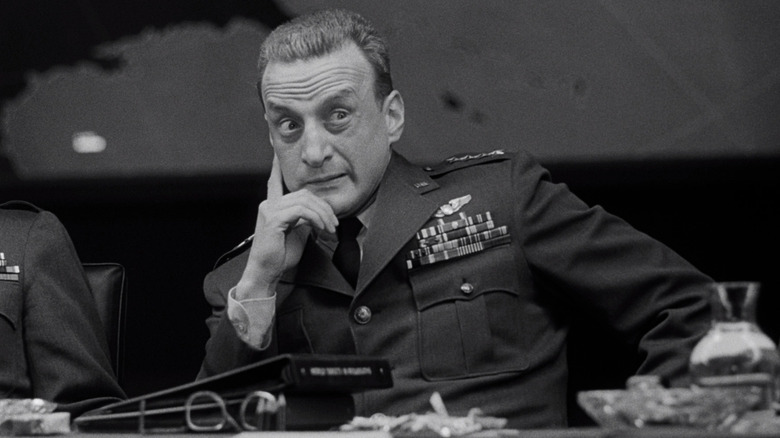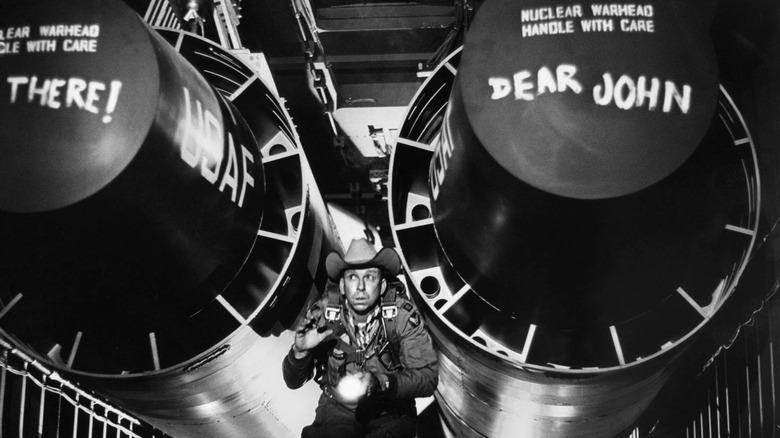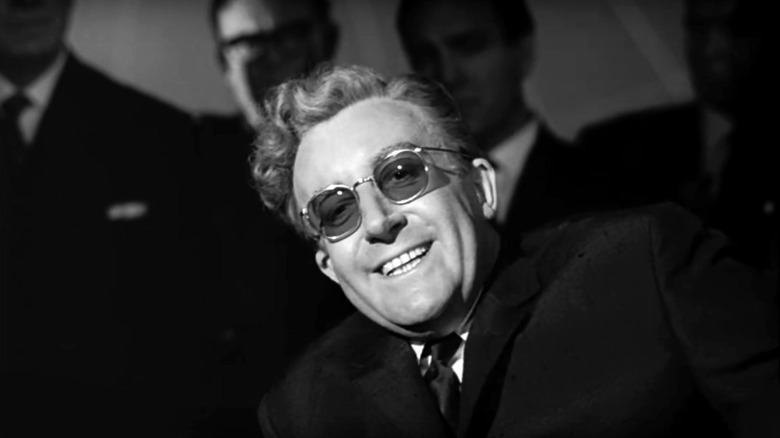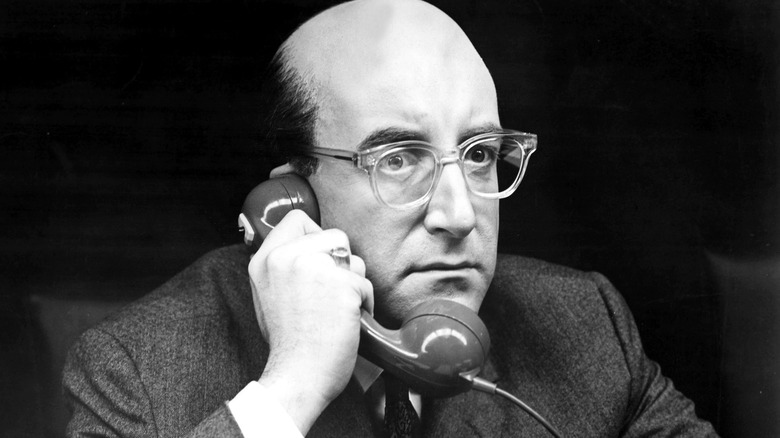The Stanley Kubrick Classic That Inspired Michael Mann To Make Movies
We may receive a commission on purchases made from links.
Many filmmakers have stories of how they, while still very young, were taken innocently to a movie theater where they encountered the film that would inspire them to become directors. For example, in an interview with the BFI, Steven Spielberg listed "Captains Courageous," the 1940 version of "Pinocchio," "How Green Was My Valley," and "The Day the Earth Stood Still" — all seen when he was a boy — as primary creative and career motivators. Stories of childhood inspiration are common, but there are just as many filmmakers who didn't discover cinema until slightly later in life. Werner Herzog, for instance, claims he didn't even acknowledge that cinema existed until he saw his first film at age 11. His education was merely watching a good deal of international cinema.
Michal Mann — the director of "Thief," "Manhunter," "Heat," "The Insider," "Collateral," and many other notable films besides — comes from the latter camp. Born in 1943, Mann hadn't even considered filmmaking as a career — not just for himself, but as a career for anyone — until he was in college. He attended the University of Wisconsin-Madison in the early 1960s when "that one film" finally broke through and made him understand that films were something someone could do professionally, and create great art in the process. That film was Stanley Kubrick's 1964 war comedy "Dr. Strangelove, or: How I Learned to Stop Worrying and Love the Bomb."
Dr. Strangelove or: How I Learned to Stop Worrying and Love the Bomb
For those who may not have seen it, Kubrick's "Dr. Strangelove" is a satire of the 1960s arms race, wherein a mad American general (Sterling Hayden) gives an order to bomb the Soviet Union for reasons that are initially unclear. Peter Sellers plays a visiting British Air Force officer who will eventually learn why, but is concerned that the general has instigated the apocalypse. The American president (also played by Sellers) sits helplessly as he sees his bombers fly toward their targets in the Soviet Union, and will come to learn that the Soviet Union has recently employed an automated doomsday device that will activate if the planes drop their bombs. The title character (Sellers a third time), a wheelchair-bound political advisor hired by the U.S., argues that wiping out most of the human population isn't so bad a prospect, clearly carrying genocidal urges from his days as a Nazi.
Those familiar with history at the time will recall phrases like "balance of power" and "missile gap" to explain why both the United States and the Soviet Union felt the need to expand their arsenals to the point where they could both wipe out the entire world several times over. Kubrick, keen to send up the casual nature of the world's obsession with nuclear annihilation, pointed out with "Dr. Strangelove" that complete nuclear destruction could come about from something as trivial as the mad caprices of a random soldier who couldn't achieve an erection one time.
Kubrick, Murnau, Pabst
In a 2012 interview with DGA Quarterly, Michael Mann recalled how his first encounter with "Dr. Strangelove" opened his eyes. Clearly, he seems to have thought, someone made this. Someone made these choices. Filmmaking is a thing. When interviewer F.X. Feeney asked Mann if he, like Spielberg, knew he wanted to make movies as a boy, Mann admitted to his college-age discovery:
"I wasn't really interested in cinema until I saw 'Dr. Strangelove,' alongside a set of films by F.W. Murnau and G.W. Pabst for a college course. These were a revelation. I'd already seen some of the French New Wave and some Russian films, but the idea of directing, of shooting a film myself? Never. Prior to 'Strangelove,' it simply had not seemed possible that you could work in the mainstream film industry and make very ambitious films for a big mainstream audience. The whole film is a third act. The mad general played by Sterling Hayden is totally submerged in his character the moment we first encounter him. There's no prelude, no context. We're just with him, we know who the guy is, and we catch up along the way. Even as a young man I found that intensity very exciting. How immediate it was."
F.W. Murnau is the German filmmaker best known for his 1922 horror film "Nosferatu," and the Oscar-winning masterpiece "Sunrise: A Song of Two Humans." Pabst, from Austria, is probably best known for the 1929 Louise Brooks films "Pandora's Box" and "Diary of a Lost Girl," as well as two different film version of "The Threepenny Opera," and a few "Don Quixote" movies.
The lessons Mann learned
Wisconsin-born Mann would go to the London Film School, where he would study with future star filmmakers Ridley Scott, Adrian Lyne, and Alan Parker. He would graduate with a master's in 1967. Mann's first feature film as a director was the TV movie "The Jericho Mile" in 1979. Mann has never made a comedic and biting political satire akin to "Dr. Strangelove" — Mann's films tend to be steely and terse and possess little levity, however sardonic they are. But he seems to have internalized some of the finer details of Kubrick's "Strangelove." Because Sellers was meant to play four different roles (according to Terry Southern in Grand Street, he was set to play the Slim Pickens role as well), the story for "Strangelove" was deliberately cordoned off, featuring no interaction between the A, B, and C plots.
Keeping characters separated throughout the bulk of a film is something Mann would famously do in his 1986 serial killer drama "Manhunter," wherein William Petersen (the actor who plays FBI investigator Will Graham) was not allowed to introduce himself to co-star Tom Noonan (who plays the serial killer known as The Toothy Fairy) until their characters met on screen for the first time late into the film.
What Mann seems to have taken most from Kubrick was the latter's penchant for stark, realist aesthetics, more evident in the director's early days as a journalist-photographer. Kubrick's films would become more staid over his career, and Mann's would become more aesthetically immediate. If one wants to see how Kubrick's films might have looked without ever having made a studio disappointment like "Spartacus" (Kubrick himself famously isn't a fan) one might look to Mann.
It's never too late to discover movies.



